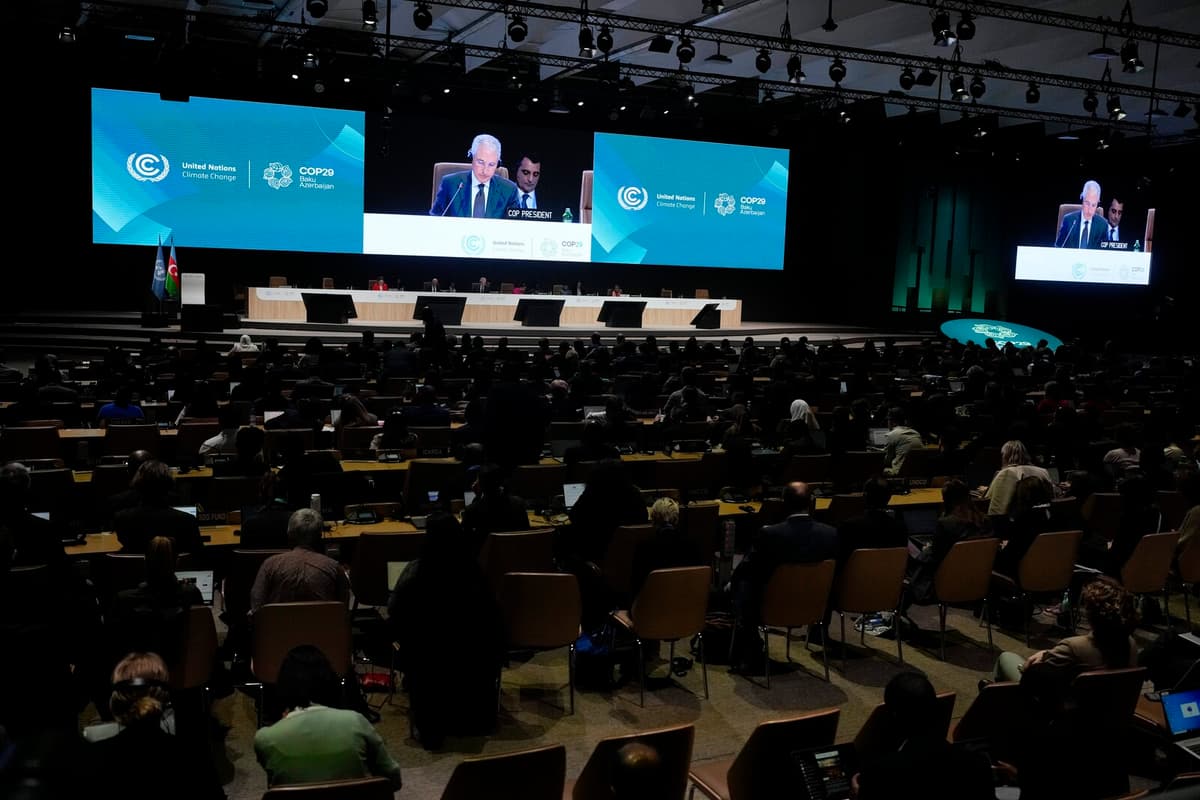Halfway into the climate meeting, no major signs of progress are seen in the negotiations, which mainly concern how much money poor countries should receive from the rich.
Our picture is that it's a deadlock, says Karin Lexén, Secretary-General of the Swedish Society for Nature Conservation.
At the same time, the leaders of the G20 countries are meeting in Rio de Janeiro, a group that both has the money and accounts for four-fifths of the world's greenhouse gas emissions.
"Still possible"
A successful outcome at COP29 is still possible to achieve, but it will require leadership and compromises, specifically from the G20 countries, says UN Secretary-General António Guterres, who was in Baku last week but has now arrived in Rio.
A previous agreement states that rich countries should contribute 100 billion dollars annually to climate efforts in developing countries. Here, voices are being raised that the sum should be at least ten times larger, if the poorer countries are to be able to implement their plans to reduce emissions.
"Very positive"
The EU and Sweden, on their part, are driving for countries like China, Singapore, and the Gulf States to participate and contribute, which countries like China and Brazil are opposing. Climate Minister Romina Pourmokhtari does not rule out a figure of 1,000 billion dollars, calling it a "negotiation issue".
The EU will be a very constructive party in these negotiations. We are a large donor. We are very positive towards global climate financing. But we notice that other parts of the world must also start financing, she says.
But perhaps the G20 countries can reach an agreement on more money by agreeing on a document that mentions that developing countries can voluntarily contribute to climate financing, according to two sources to Reuters.
Karin Lexén believes that more would be needed to break the deadlock.
Unfortunately, there are quite a few in the corridors of COP29 who hope – but have rather low expectations – that the G20 would be able to come up with a strong, positive signal, she says.
G20 is a forum for the world's largest economies that meet regularly to discuss issues related to the global economy.
Total, G20 accounts for around 85 percent of the world's GDP and three-quarters of global trade. They also represent two-thirds of the world's population.
Members are Argentina, Australia, Brazil, France, Germany, India, Indonesia, Italy, Japan, Canada, China, Mexico, Russia, Saudi Arabia, United Kingdom, South Africa, South Korea, Turkey, and the USA, as well as the African Union and the EU.
Source: World Economic Forum
At COP29, nearly 200 countries are to agree on a new goal for climate financing – the money rich countries should pay to help poorer countries tackle climate change.
Until 2025, rich countries, such as the USA, EU, and Japan, have committed to providing 100 billion dollars per year in climate financing. Now, when that sum is to be renegotiated, developing countries believe that it rather requires 1,000 billion dollars per year.
The USA and EU also want more countries to contribute with support, such as oil-rich Gulf States and China – which the latter do not agree with.
So far, the negotiations have been slow. They disagree on how much should be paid, who should pay, and what the money should go to.






